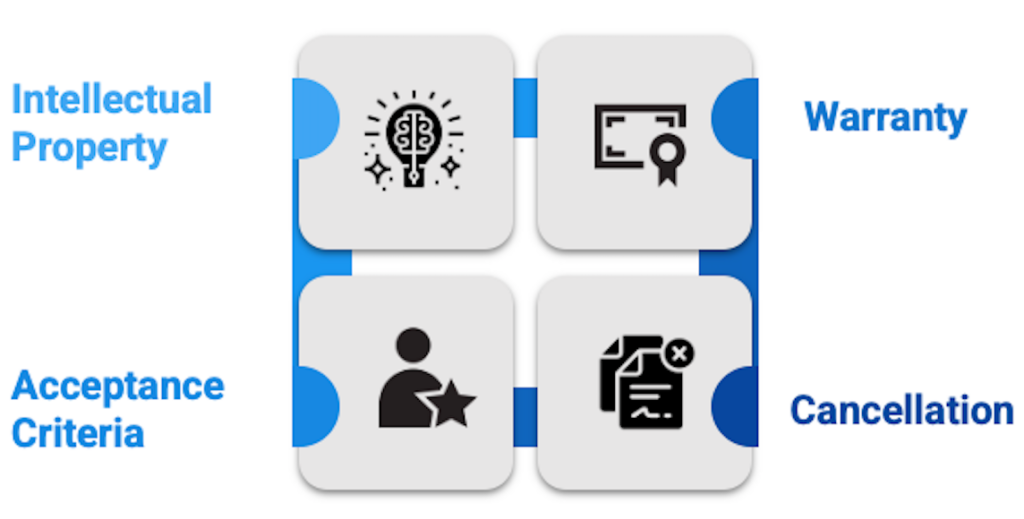Contracts often include standard legal clauses known as boilerplate provisions to minimize risk. It is important for buyers to be aware of these clauses and to seek legal review to identify any negotiable terms. Failing to carefully review these terms and conditions can result in unexpected and unacceptable risks under the contract. Negotiating these boilerplate items can be time-consuming, but with the use of SRM for contract creation, they may already be included in the contract template.
The following is a short list of some of the types of items typically found on the back of an agreement.
Intellectual Property: There are legal entitlements that apply to specific names, recorded media, and inventions.
Acceptance Criteria: These are the performance requirements and conditions that need to be met before projects or products can be accepted.
Warranty: A commitment, whether stated or implied, that a certain fact about the subject matter of a contract is currently or will be accurate. It is important to differentiate this from a guarantee, which is a contract or promise made by an entity to be accountable for the performance of a product or individual. Please refer to general warranty, guarantee, and special warranty for further information.
Warranty Costs: The expenses related to a warrant encompass shipping, receiving, repair, replacement, and the necessary materials for repair or replacement.
Warranty of Merchantability: There is an implied warranty that goods are suitable for their intended use.
Implied Warranty: A warranty imposed on sellers beyond any express agreement in the contract.
Express Warranty: When a seller describes the goods they are selling, they may provide a positive portrayal of the nature, character, use, and purpose of the goods. This positive portrayal is meant to encourage the buyer to make a purchase and the seller expects the buyer to rely on this information.
Cancellation Charge: When a customer cancels an order, the seller may charge a fee to cover their costs. This includes any expenses associated with engineering work, purchasing raw materials, or starting manufacturing operations. These charges may also be included in the cancellation fee.

